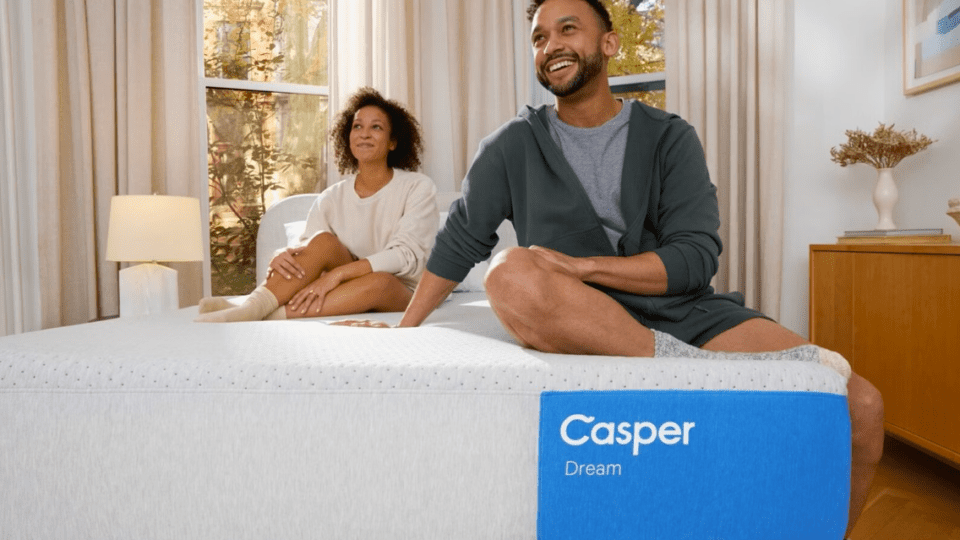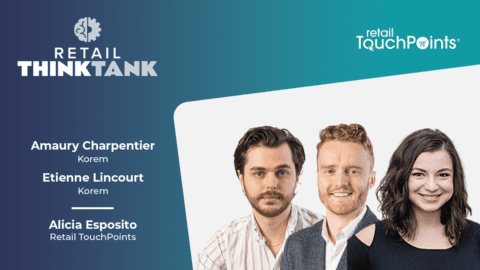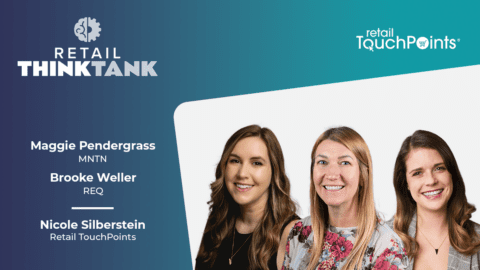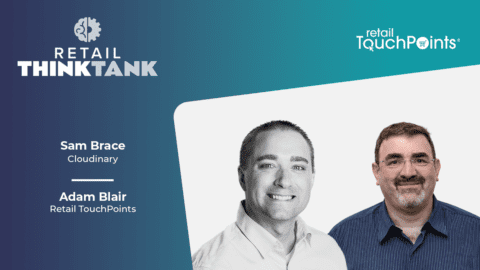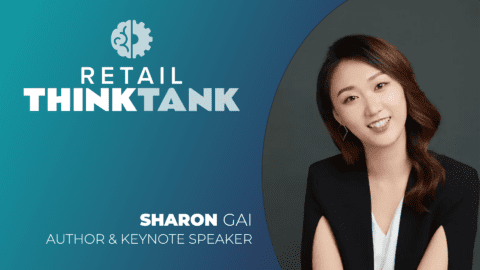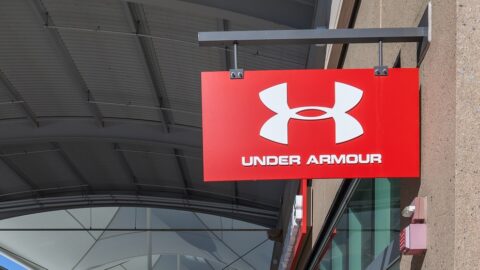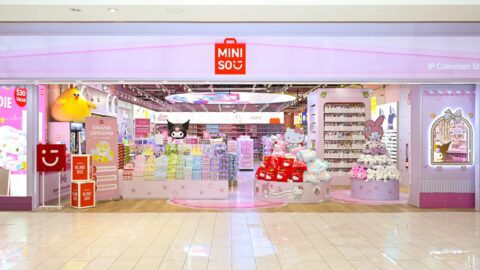Joe Megibow may be new to the CEO role at Casper, but he’s very much a known entity in the retail industry. This was on full display during an impromptu stroll across the Mandalay Bay resort at Shoptalk in Las Vegas last month, during which he was stopped repeatedly. Megibow credits his striking white hair for his recognizability, as well as the fact that “I’ve been in this industry for decades and I don’t make enemies,” he said.
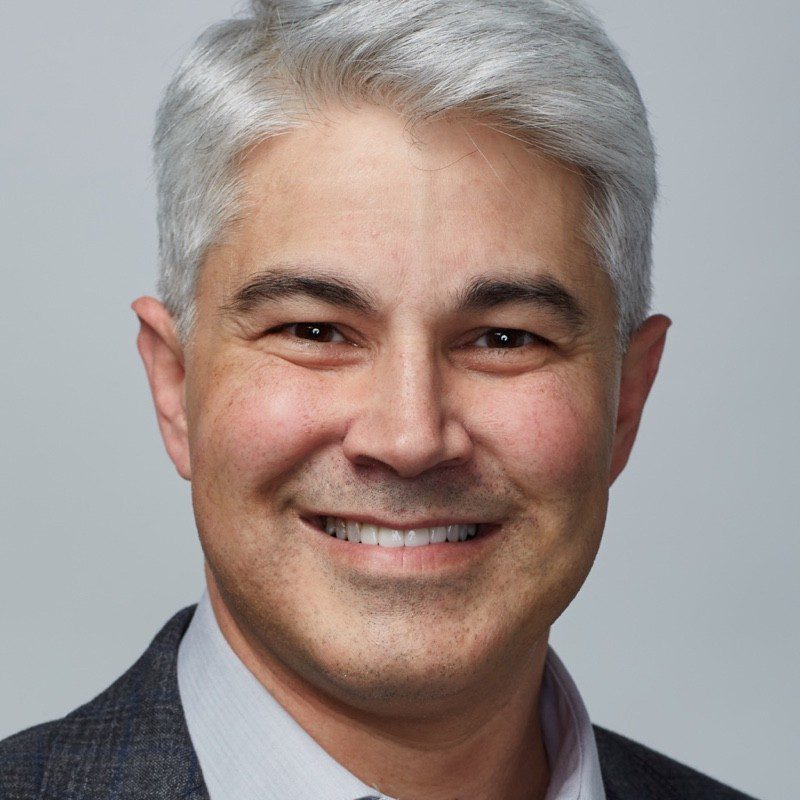
Over the course of his career Megibow has held leadership roles at Expedia, American Eagle Outfitters, Bright Cellars and Casper competitor Purple. He jokes that his favorite line now that he’s leading Casper is that his job is “figuring out how to get people in my bed.”
Joking aside, Megibow sees his real mission as something much more serious: “My job is to get our soul back again.” And indeed, the former DTC darling has hit some bumps in the road over the past decade. The company upended the mattress industry when it debuted in 2014, with its fresh branding and ecommerce-based approach to a category that had steadfastly resisted digital disruption. But after a lackluster IPO in 2020, the company retreated from the public market just two years later when it was acquired by private equity firm Durational Capital Management in 2022.
Now, Megibow has been brought in not just to get the company into the black but also bolster its foundations, both externally and internally: “I haven’t been here that long,” said Megibow in an interview with Retail TouchPoints, “but my team has. It’s feast or famine, sure, but it’s been mostly famine these last few years, and it’s been really hard on them. We need to change that.”
Advertisement
For Megibow this is clearly more than just another in a line of retail leadership positions. He requires little prompting to expound passionately on topics like sleep metrics, pressure zones and thermal conductivity. Not to mention that he travels back and forth every week from his home in San Francisco to Casper’s New York offices. When asked why he simply said, “I’m very committed.”
Megibow laid out his vision for the future of Casper, which ultimately comes down to the two things that have been a throughline across his career — good product and a relentless focus on the customer.
Retail TouchPoints: What would you say is the commonality across the varied companies you’ve worked for in your career?
Joe Megibow: The theme that’s driven me across all these companies is they’ve all genuinely been laser-focused on the customer experience. That’s my passion — how do we do the right thing for the customer in new and innovative ways?
[When I joined] Expedia it was [at the center of] what the early days of the internet was all about — creating transparency in a category that was very opaque. It flipped the script and put the power with the consumer, and that changed the entire category. But the bigger it became, the more it was a commodity where you could buy rooms in the same hotel from 10 different sites, so why buy from us? The reason you would buy from us is if we were more customer-focused or easier to use or more trustworthy than anyone else. That right there is the thread across every company I’ve worked at. Customers vote with their wallets every day, so you have to have a product customers want to buy and then be laser focused on servicing that customer.
Even American Eagle Outfitters [was a disruptor in its way]. When I joined, our stores and our online business were managed as completely disparate channels, as if it was a different customer. What that meant was that we were anti-customer; we were optimized around internal channel accounting and not what was in the best interest of the customer. So in 2012 we rebuilt, top to bottom, the entire company so we could replenish stores and ship to the customer from the same inventory pool. We were one of the first six or seven companies to do buy online, ship from store.
That’s all table stakes now, but that’s the nature of disruption. Once you’ve disrupted, it resets consumer expectations.
RTP: But what does the disruptor do next? How do you maintain your position at a company like Casper that began as a disruptor but now has an offering that has become more commoditized?
Megibow: There’s no doubt that our disruptive benefit when we launched is no longer disruptive, so to lean on that is not a sustainable differentiator. And I think we’ve struggled with that as a company through the years. The one thing we did do is we built a hell of a brand. There’s been some brand erosion as we’ve been unable to invest at the somewhat crazy levels we were investing at before, but we built a brand and that’s an asset.
That brand comes with trust and confidence. On a durable good you want to know that you’re buying from a company you believe in. So sure, it’s more commoditized, but you don’t want to buy something that you can’t return or you don’t know what it’s made out of or if it’s going to last. That’s something foundational we have, but that’s still not enough.
What I also love is that a significant percentage of our customer base today is a repeat customer, which is not how you typically think about this category. Mattresses are kind of a one-and-done. And part of the turnaround [strategy for Casper] is making sure that if I only get one transaction, it’s profitable for us. We have a really good product that has driven very high consumer satisfaction, which means even though it may be six or seven years later, they’re coming back to us. That speaks volumes.
But the big thing that we’ve not leaned into is the depth of research we put into our product and the product innovations that are far beyond what I think most mattress companies do. This category is still very anti-consumer at its core. It’s gotten better, but at the end of the day these are high-margin items and [the business] is structurally set up to try to capture as much margin from as many customers as possible. That means that in a lot of ways, mattresses are built to service the channel economics versus making the best possible product for the consumer, and the best possible product is a product that improves sleep.
Sleep health is in decline, and sleep research is a relatively new bit of science. We’re learning more and more about the restorative nature of sleep and how important it is to human health. At Casper, we’ve taken a more consumer-centric view [by looking at] what’s broken and how we can help fix it.
RTP: How exactly are you doing that?
Megibow: When you get into the science one of the things you learn is that hours of sleep is much less important than quality of sleep. And quality of sleep is really about how continuously you stay asleep, because it’s that deep sleep where all of the restorative things occur. If you’re constantly being disrupted, you never get into deep sleep. So then the question is, what are the disruptors of sleep and how can we impact those things in positive ways?
For example, the majority of people sleep on their side, and side sleepers’ problems are shoulder and back pain; those are the number one thing that causes sleep disruption. So we said, “What can we do?” We hired a [specialist] trained in the intersection of the human body and objects, and we did a bunch of research on what causes that pain. We attacked that problem for the better part of a year and built a mattress that is zoned with different pressure at different places and that has contours in the foam that cause it to break differently where you have pressure.
I don’t know anyone who’s taking this level of focus at scale. Also, this is in our mattresses, but we’re not talking about it, we’re not educating the consumer. That’s a huge opportunity to build the brand.
RTP: But you do have to make the economics work, so what are you doing to improve that side of the equation?
Megibow: We were a very well-funded business. And when you’re well-funded and have bold ambition, it’s easy to invest in the future. In practical terms that means we’ve been carrying a lot of cost and a lot of overhead for what we might become someday, as opposed to running a business that is structurally set up to make money today. A lot of this work started before I got here, but we’re now working to right-side-up the business, where every single day of the week, the money we make is greater than the costs we have.
It’s just building the foundation of a well-oiled machine where you’re only investing in costs that support things the customer will pay for with very efficient operations across all of it. If you do that well, you produce cash that you can reinvest. That’s where the fun begins, because you’re not investing someone else’s money in anticipation of something that might happen in the future, you’re investing the money you earn into things you know are going to grow. That’s where a business really starts to take off because it’s earned, and it’s earned on something that the customer has clearly been willing to pay for. We are myopically focused on near-term cash production right now in order to own our destiny.
RTP: Casper has its roots in DTC, but you’ve since expanded with your own stores and through wholesale. How do you view those channels?
Megibow: Our stores do great. Our website has historically been great, although we diverted our attention away from the website for a variety of reasons, so we have some catching up to do there. And in mass channel we’ve done very well — that’s Costco, Target, Amazon — we move a lot of mattresses there and we have healthy margins.
The problem with mass in terms of long-term growth is we’re selling sealed cardboard boxes. [There’s a lot of information] online, but you can’t touch it. And if you go to Costco or Target, you still can’t touch it because there’s nothing on display. There’s the convenience factor of buying it right then and taking it home, but you’re still not getting what people covet, which is to try it. In our stores you can; we’ve got 67 of those, which is nice coverage, but it’s a fraction of the population in the U.S. that’s interested.
So how do you solve that? It’s the other side of wholesale — furniture stores and specialty mattress retail, which is by the way where the majority of mattresses are purchased. We’ve under-invested in that, so we see that as a huge opportunity. We need to be where the customer wants us, and right now in most of the places you go to see mattresses we’re not on the floor.
RTP: Given the brand’s focus on product innovation, are you excited to see what happens when Casper mattresses are placed next to competitors?
Megibow: The hard part is that mattresses are like performance shoes. Putting them on doesn’t really tell you that much. And in fact, a new pair of shoes may not actually be great for the first couple of days until they are broken in. A mattress is the same. How do you educate consumers on that? In some ways, other players don’t care about that problem. In fact, if you really want to maximize revenue you want a mattress that feels the best it possibly can in the first five minutes you lay on it.
So how do we stand out on “the shelf”? It’s a classic CPG challenge, but this is a health product where customers will spend a third of their life. To have that decision come down to five minutes…in some ways we’re making it much harder on ourselves in our mission to get it right, but we’re really going to bet the farm on quality of sleep. That’s where the brand trust, the authenticity and the customer endorsements we have all start to play and are going to come together.



